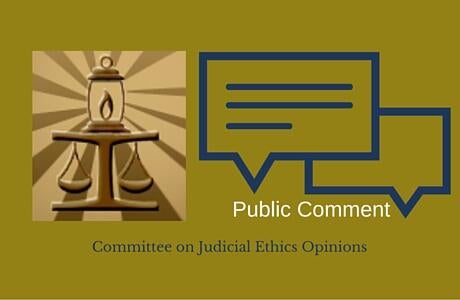When should a judge who is a former prosecutor be disqualified from a criminal proceeding?
The U.S. Supreme Court’s June 2016 opinion in Williams v. Pennsylvania concluded that under federal due process requirements, judicial disqualification is required if the judge had ‘significant personal involvement’ in making critical decisions regarding the prosecution of the case currently before the judge.
Last year, the Supreme Court of California’s Committee on Judicial Ethics Opinions (CJEO) issued an advisory opinion concluding that a judge who had appeared in a case as a prosecutor could hear the case if the judge had not ‘actively participated’ as a prosecutor in the case, such as an appearance at a perfunctory, nonsubstantive hearing. CJEO similarly concluded that a former prosecutor who had ‘actively participated’ would be disqualified from later sitting as a judge in the case.
It‘s gratifying that the Williams opinion supports our earlier advice. The question came up right away about how Williams affects a former prosecutor who appeared in a case alleged as a sentencing strike. Our new advice explains how the federal standard is similar to our ‘active participation’ standard and how both apply to a judge who prosecuted priors. We’re pleased to be able to assist former district attorneys on the bench in deciding after Williams when they can hear matters involving their prior service and when they must step aside.
—Justice Ron Robie, Chair, Committee on Judicial Ethics Opinions
In the recent update to this advice, CJEO addresses how Williams and the California ‘active participation’ standard applies when the judge served as a prosecutor in a case alleged as a prior conviction. CJEO concluded that the critical factor is whether there are overlapping issues of law or fact between the prior matter and the current matter, which occurs when an alleged prior governs the punishment in the current matter.
CJEO Oral Advice Summary 2016-017 Disqualification for Prior Appearance as a Deputy District Attorney in Another Proceeding concludes that:
-
Disqualification would be required if a judge hearing a criminal arraignment served as the district attorney at the preliminary hearing in an alleged prior conviction because such an appearance involves active involvement in the prosecution of a prior that will govern punishment and a person aware of the facts would reasonably doubt impartiality.
-
Disqualification would not be required if the judge appeared at a nonsubstantive hearing, such as a continuance or other ministerial matter, and did not actively participate in the prosecution of the alleged prior, reasonable doubt as to impartiality would not be likely and disqualification would not be required.
As guidance, CJEO also advises that the following are not determinative factors:
- The judge’s memory;
- Whether a guilty plea was entered;
- The length of time since the prior service; or
- The nature of the hearing in the current matter.
CJEO provides oral advice only after referring questions to the California Judges Association ethics hotline or in other limited circumstances, such as when the advice relates to a prior CJEO opinion. The oral advice CJEO issues is summarized and posted on the CJEO website for the benefit of the bench and the public.
Opinion citations:


